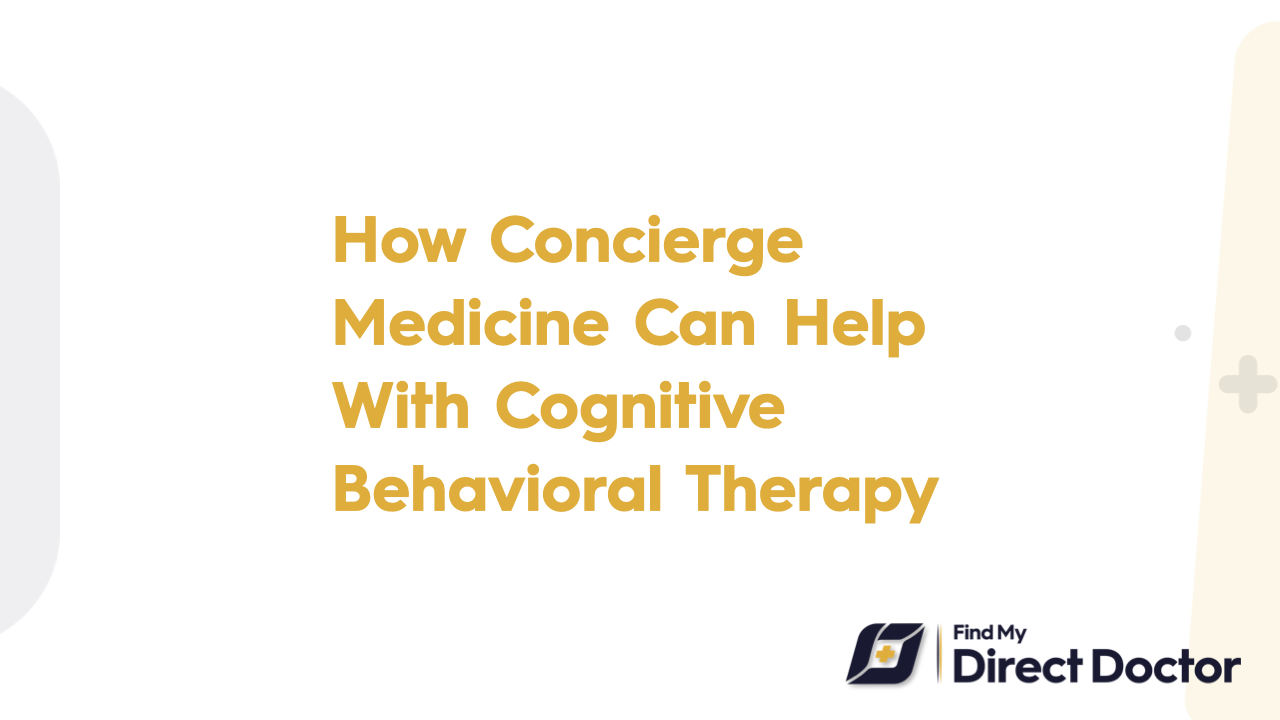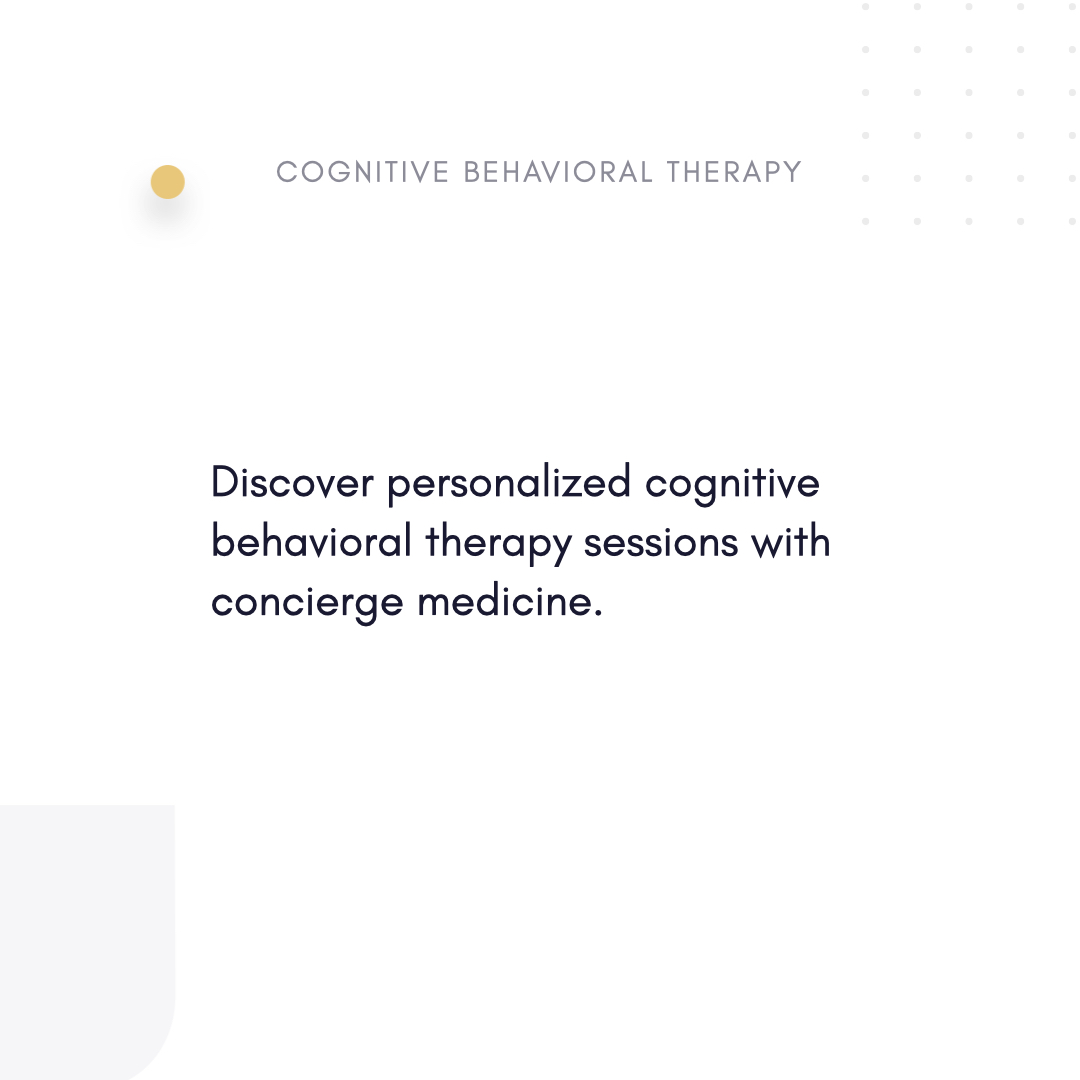



Among the mental health conditions treated with Cognitive Behavioral Therapy (CBT) are depression, anxiety disorders, and post-traumatic stress disorder (PTSD). Concierge medicine has emerged as a healthcare model that provides personalized and convenient care to individuals seeking cognitive behavioral therapy in recent years. Let's explore how concierge medicine can help.

Access to Experienced Therapists:
Patients benefit from the expertise of these skilled professionals, ensuring effective and evidence-based care with concierge medicine practices.
Individualized Treatment Planning:
During concierge medicine, therapists develop customized treatment plans that are tailored to each patient's unique needs and goals, emphasizing individualized care. During the initial consultation, therapists conduct a comprehensive assessment to understand the patient's unique challenges and develop a customized therapy approach.
Flexible Scheduling Options:
Patients can schedule therapy sessions at a time and location convenient for them, reducing barriers to accessing treatment and accommodating busy schedules.
Extended Appointment Times:
The appointment times for concierge medicine are extended compared to traditional therapy settings, which are often limited in time. During therapy sessions, patients can discuss complex issues in more depth and explore them in greater depth, resulting in more meaningful therapeutic outcomes.
Privacy and Confidentiality:
Unlike traditional medicine, concierge medicine prioritizes privacy and confidentiality. Therapy sessions are held in a private, comfortable setting, allowing patients to discuss sensitive topics without fear of judgment.
Enhanced Therapeutic Relationship:
By reducing administrative barriers and emphasizing personalized care, concierge medicine fosters a strong therapeutic relationship between the patient and therapist.
Improved Treatment Outcomes:
CBT patients benefit from concierge medicine's personalized approach to treatment outcomes. In order to manage symptoms and recover long-term, therapists can customize interventions based on specific concerns and preferences.
Continuity of Care:
As part of concierge medicine, patients undergoing cognitive behavioral therapy receive ongoing support and follow-up that promotes continuity of care. To ensure optimal outcomes, therapists maintain regular contact with patients, monitor their progress, and adjust treatment plans accordingly.

Initial Assessment and Goal Setting:
The therapy process begins with an initial assessment, during which the therapist conducts a thorough evaluation of the patient's symptoms, challenges, and treatment goals. In collaboration with the patient, they develop a personalized treatment plan.
Therapeutic Interventions and Techniques:
The therapist guides the patient through various cognitive behavioral therapy techniques, such as cognitive restructuring, exposure therapy, and behavioral activation.
Regular Progress Monitoring:
Regular check-ins and assessments help the therapist track changes in symptoms and identify areas for further exploration or intervention during therapy.
Skill-Building and Coping Strategies:
In the course of treatment, patients learn practical skills and coping strategies to manage symptoms and improve their overall well-being. These skills may include stress management techniques, relaxation exercises, and problem-solving strategies.
Post-Therapy Support and Follow-Up:
After completing cognitive behavioral therapy, patients receive post-therapy support and follow-up care to maintain their progress and prevent relapse. To support the patient's mental health journey, the therapist can provide ongoing support and recommend additional resources or strategies.
Previous Post